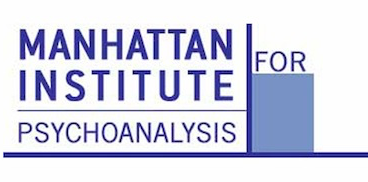Inspired by the earlier blog entries of Lee Katz Maxwell and Blair Casdin, Lama Khouri reflects on her journey from political affairs officer at the United Nations (UN) to psychoanalytic candidate at the Manhattan Institute for Psychoanalysis (MIP).
From the International to the Interpersonal
By Lama Z. Khouri CAPC, LMSW, MS
Like many psychoanalytic candidates and psychoanalysts, this was a career change for me. My previous work life was at the United Nations (UN) in New York. I spent most of my fourteen years there as a political affairs officer in the Department of Peacekeeping Operations. I headed the desks of Georgia and the Republic of Haiti (two small countries in the backyards of superpowers). Heading a desk meant following and reporting on the implementation of the Security Council’s requests of the Secretary-General (SG).
I have of late been considering the plight of my part of the world—the Middle East—and what can be the motivating factor that compels individuals to join the so-called Islamic States and to commit such heinous acts. As my analyst often reminds me, this is the nature of the human beast. We have committed such atrocities since the humans first appeared on this planet. If so, what are the psychic mechanisms that motivate them? Can we apply psychoanalytic theory and techniques to international relations?
In one of his weekly Tuesday seminars, the psychoanalyst, writer, and poet Michael Eigen spoke of “how ubiquitously psychic life is deflected. The war or trauma world within may be enacted in the outside world, perhaps in hopes that it will be noticed, but also as a means of evacuating or deflecting it – partly out of lack of capacity to tolerate and work with internal dramas. To build such capacity is an evolutionary challenge and at this point of history, a necessity. How to develop such capacity is, hopefully, a work in progress, or needs to be.”(1)
Elaborating on Michael Eigen’s rich observation would require a full article, but for the purpose of this blog entry, I would like to just scratch the surface. Leaders of Member States and their actions can be just as dysfunctional as many of our clients: They can be delusional (the second Gulf War), sadistic (the self-proclaimed Islamic State), or paranoid (Guantanamo Bay, North Korea, Russian/West relations). I would like to add that perhaps international relations are more primitive than human ones. International relations are governed by the law of the jungle: The big countries have the final say. How so? The resolutions and statements of the General Assembly, which includes the 193 Members of the organization, are non-binding. In other words, Member States can complain until they are blue in the face, the final say is always with the Security Council. Although the Council, at any given time, always has fifteen Members, the Permanent Five (China, France, Russia, United Kingdom, and the United States) can veto any decision. Thus, the world’s body is really ruled by the Permanent Five.
For the sake of argument, I would like to venture and say that the UN is like the field of psychoanalysis: They are both viewed by many as ineffective and inefficient. Goals are not reached fast enough; actions take a long time to be implemented; change appears miniscule. As in the early years of psychoanalysis, the UN continues to demand of its staff a neutral mind, a detached and objective approach, and an emotional distance. Like a psychoanalyst, the SG and his staff, being neutral arbitrators, are a voice for the voiceless. As psychotherapists or psychoanalysts we can be a voice for the parts of the self our clients do not want to hear, feel, or see.
The Member States are like our internal objects fighting for supremacy: Who’s going to take you over, your internalized bad object or your good one? Which part of yourself are you going to listen to? Which is going to win, your instinctual wishes and desires, or your lofty ideals and standards? Our clients, like Member States, often struggle with internal wars, ambivalence, and self-destructiveness.
The SG and the psychoanalyst are misunderstood: both of them have autonomous clients who have free will, and both of them are “hired” to observe, verbalize, and make their clients aware of the causes of disputes and struggles. Neither of them can make decisions on behalf of his/her clients; as the joke goes, no one can change the light bulb unless the light bulb wants to change. Yet, both the analyst and the SG are blamed for their clients’ lack of tangible progress.
The SG, like the psychoanalyst, is a participant-observer, albeit from a different angle. The SG is often called upon to observe disputes, negotiations, or agreements, and to participate by helping the parties reach a balanced and peaceful state. At times, the psychoanalyst and the SG must serve as a bad object: Former SG Kofi Annan has been quoted as saying that “SG” stood for scapegoat. Serving as the scapegoat allows for a positive triangulation because it helps Member States to join together and reduces tension.
Wars have always existed. The UN, like psychoanalysis, cannot cure the ills of the world, but perhaps it can minimize the damage or rebuild the destroyed.
I have been working, studying, and writing in the field of psychoanalysis since 2004. Leaving the UN was one of the hardest decisions I’ve ever had to make. Over the years there were times when I wondered whether I had made the right decision to leave the UN. Why leave a cushy and fulfilling career? Why sacrifice a monthly paycheck and excellent benefits? My answers continue to change and evolve: I left because I wanted to spend more time with my children, because I am fascinated by the psyche and by people, and because psychotherapy and psychoanalysis allow me to bring all the aspects of myself to my career. This field feels more natural to me; I wanted to be neither neutral nor objective, nor did I want to keep my emotions out of the equation. The list continues.
I carry my experience with the UN to the consulting room. My fourteen years with the organization taught me to appreciate the different: What is OK in Jordan may not be OK in Germany; what is acceptable to me is not necessarily acceptable to my client. Living in a war, internal or external, is different from observing it from a distance. Verbalized thoughts always mean something. Just as what is recorded in history can never be erased, what I do not say I still have a chance to say, but what I do say I can never take back. I cannot know what is best for my clients or what the ripple effects of any action can be.
My work at the UN was challenging, fulfilling, and exciting, but I know I made the right decision moving to psychoanalysis: I would like to believe that I play a positive and direct role in the lives of my clients, even if it is a small one. I hope that, through our work together, they get closer to a sense of peace and serenity. Each of my clients has left an indelible mark on my psyche. I grow with my clients and learn about myself as I am learning about them. I am a better person as a result of my work with them.
Most important, I chose psychoanalysis and remain in the field because I believe that “to redeem one person is to redeem the world” (Hornstein 2000). (2)
- Michael Eigen Weekly Seminars.
- Hornstein, G. To Redeem One Person is to Redeem the World. New York: Free Press, 2000.
Lama Z. Khouri CAPC, LMSW, MS is a psychoanalytic candidate at Manhattan Institute for Psychoanalysis, Executive Director of Circle OASIS LLC, and student and researcher at Teachers College, Columbia University.







